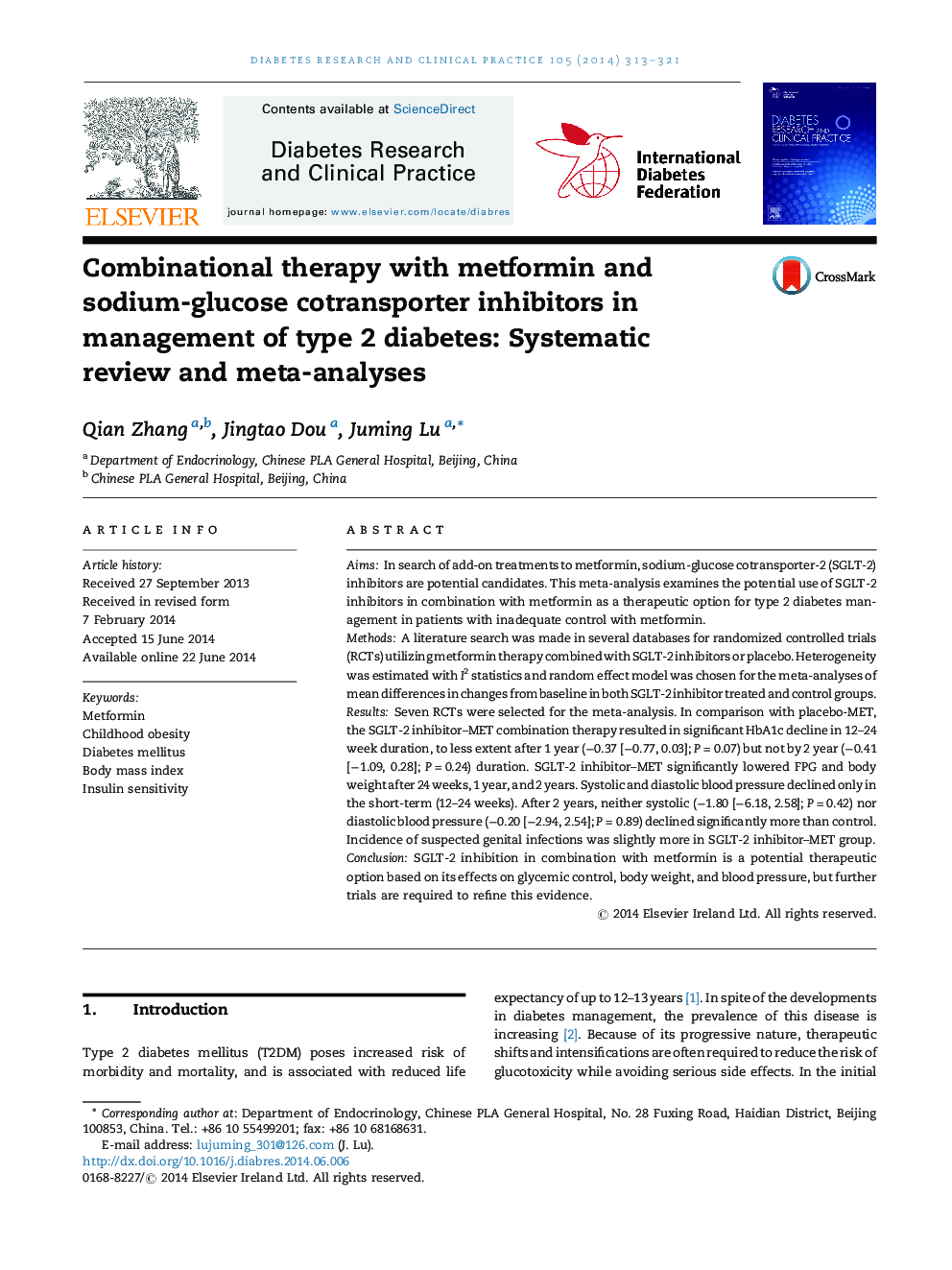| Article ID | Journal | Published Year | Pages | File Type |
|---|---|---|---|---|
| 5899512 | Diabetes Research and Clinical Practice | 2014 | 9 Pages |
AimsIn search of add-on treatments to metformin, sodium-glucose cotransporter-2 (SGLT-2) inhibitors are potential candidates. This meta-analysis examines the potential use of SGLT-2 inhibitors in combination with metformin as a therapeutic option for type 2 diabetes management in patients with inadequate control with metformin.MethodsA literature search was made in several databases for randomized controlled trials (RCTs) utilizing metformin therapy combined with SGLT-2 inhibitors or placebo. Heterogeneity was estimated with I2 statistics and random effect model was chosen for the meta-analyses of mean differences in changes from baseline in both SGLT-2 inhibitor treated and control groups.ResultsSeven RCTs were selected for the meta-analysis. In comparison with placebo-MET, the SGLT-2 inhibitor-MET combination therapy resulted in significant HbA1c decline in 12-24 week duration, to less extent after 1 year (â0.37 [â0.77, 0.03]; PÂ =Â 0.07) but not by 2 year (â0.41 [â1.09, 0.28]; PÂ =Â 0.24) duration. SGLT-2 inhibitor-MET significantly lowered FPG and body weight after 24 weeks, 1 year, and 2 years. Systolic and diastolic blood pressure declined only in the short-term (12-24 weeks). After 2 years, neither systolic (â1.80 [â6.18, 2.58]; PÂ =Â 0.42) nor diastolic blood pressure (â0.20 [â2.94, 2.54]; PÂ =Â 0.89) declined significantly more than control. Incidence of suspected genital infections was slightly more in SGLT-2 inhibitor-MET group.ConclusionSGLT-2 inhibition in combination with metformin is a potential therapeutic option based on its effects on glycemic control, body weight, and blood pressure, but further trials are required to refine this evidence.
